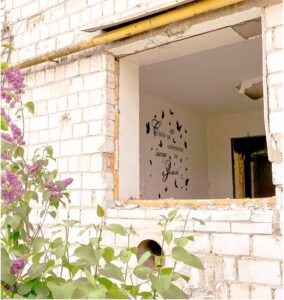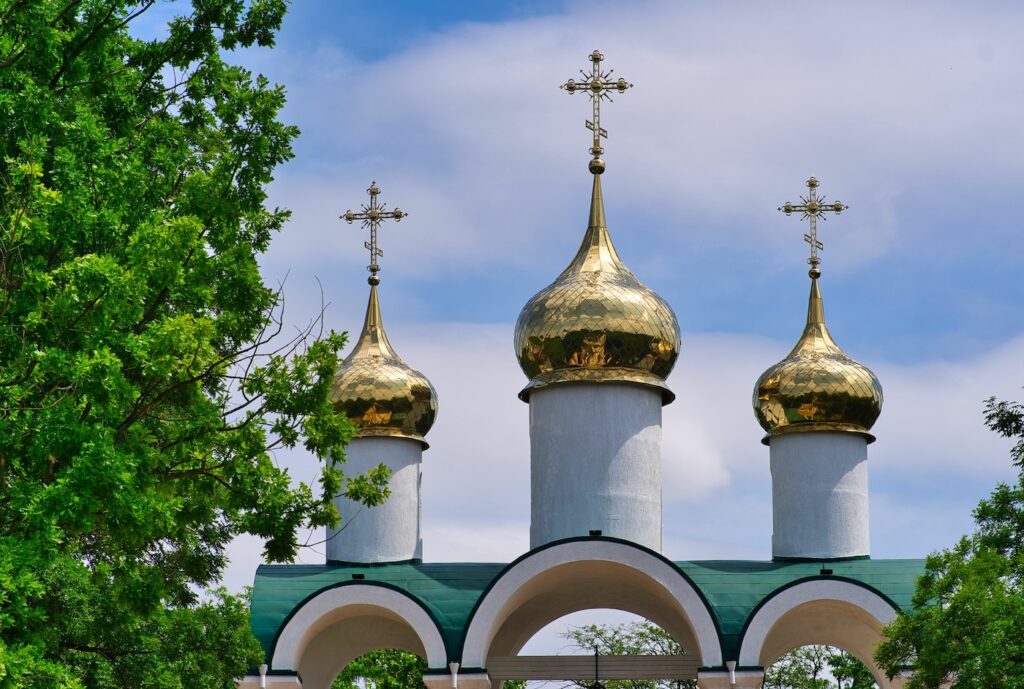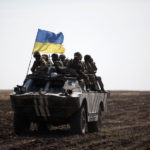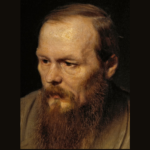The Russian czar Alexander III reportedly coined a phrase, which, as we would say today, became viral: “Russia has only two allies: its army and navy.” The Russian president Vladimir Putin, who rules as if he were a czar, seems to appreciate this expression. In 2017, in the annexed Crimea, he inaugurated a monument to Alexander III with this motto engraved on it. However, a modified version would suit Putin’s governance better: “Russia has only two allies: its hard and soft powers.”
The Russian president has been using his army since he became a president: first in Chechnya, later in Georgia, then in Syria, and finally in Ukraine. At some stage, he also realized that energy (oil and gas) is an effective weapon—somewhere between hard and soft powers. Eventually, the Russian president weaponized softer powers: culture, religion, and ideas.
In January 2023, Putin signed a decree that amended the “Basics of the State Culture Policy”—a framework document with the status of law. The decree postulates the “cultural sovereignty” of Russia, which is based on “spiritual and moral values.” Russian propaganda, in line with this postulation, tries to explain the war in Ukraine as a struggle to protect these “spiritual and moral values” from the ostensible infringements advanced by the “decadent and liberal” West.
Some religious conservatives in the West seem to have accepted this framing as true. In the current issue of First Things, church historian Matthew Dal Santo admires what he calls Russia’s “achievement”: “Russian culture identifies a spiritual goal and norm for public life, the earthly counterpart of the holy city, and its name is not infrequently invoked in public discourse: Holy Rus. In this regard, Russian culture is closer to the truth than is the West’s all too rigorous political atheism.”
Start your day with Public Discourse
Sign up and get our daily essays sent straight to your inbox.Russia’s invocation of “traditional values” rests on the completely secular view that moral teachings can be severed from religion; and the result is that these values have been vacated of any religious meaning and become a blunt instrument of the Russian state.
This is a naïve and superficial outlook. On one hand, indeed, Russian culture is imbued with Christian ideas. On the other, it often distorts these ideas by advocating various forms of exclusivism, including anti-Semitism and, more recently, anti-Ukrainism. It has started an ongoing war in my country, citing religion-based “traditional values” as a key motive. However, Russia’s invocation of “traditional values” rests on the completely secular view that moral teachings can be severed from religion; and the result is that these values have been vacated of any religious meaning and become a blunt instrument of the Russian state.
“Traditional Values”
The Kremlin has borrowed the concept of “spiritual and moral values,” also known as “traditional values,” from the Russian Orthodox Church. Patriarch Kirill of Moscow popularized the idea of values beginning in the 1970s (see the collection of his old and more recent essays Freedom and Responsibility: A Search for Harmony–Human Rights and Personal Dignity). At the peak of secularization campaigns in the West, some thinkers such as the American sociologist Talcott Parsons came up with the concept of values. They suggested that values are subtractible from religion and transferable in a secular society. This offered a compromise between ideological secularism and religion as the latter struggled to maintain its place in the Western public squares.
Kirill Gundyaev, at that time a young and promising Russian bishop, pondered whether the concept of values could be transported into Soviet society. The West’s secularization process was gentle compared with the policies behind the Iron Curtain. While Western nations ostracized religion from public spaces, Soviet Russia pursued a very hard and violent secularism that sought to eliminate religion from public and private spaces. Kirill’s hope was to use the concept of values to secure at least a tiny public spot for the Russian Orthodox Church in the Soviet Union.
Russian Civilization
This idea kicked off only after Kirill became the patriarch in 2009. But by that time, “traditional values” were no longer needed as a shield against militant atheism. Instead, the idea of values was repurposed to substantiate the concept of a unique Russian civilization, or what I call Russian civilizational exceptionalism. In fact, I would argue that Russian civilizational exceptionalism is the dominant state ideology, through which the Kremlin rationalizes its war in Ukraine and tries to compel the Russian population to support this war. Russian civilizational exceptionalism has religious overtones. Patriarch Kirill and other hierarchs, theologians, and religion-inspired thinkers are its co-demiurges.
In addition to the concept of “values” that goes back to the American school of sociology, another America-born concept inspired the designers of the Russian exceptionalism—Samuel Huntington’s “clash of civilizations.” Although Huntington never envisaged a Russian civilization, his followers in Russia do. Huntington’s thesis offers a supporting theory for Russia’s understanding of its civilizational exceptionalism. These Russians particularly like the idea that civilizations, in the Huntingtonian interpretation, are framed by religious traditions. Their idea goes as follows: Russia is not an ethnic but a supra-ethnic entity that comprises many ethnicities. They are united by common culture, language, and religious traditions. Orthodox Christianity is the most important but not the only one of them. Others include Islam, Judaism, and Buddhism—the traditional faiths of Russia’s peoples.
Putin believes that the constellation of the Western superstates has stolen from his own orbit several planets that belonged to the Russian solar system, including the largest and most precious one—Ukraine.
For proponents of Russian civilizational exceptionalism, Russia emanates a strong gravitational field that most other states are unable to emit. Only a few Western states feature the same gravity, primarily the United States. Like giant stars, they drag to their orbits and can devour planets and other stars. Putin believes that the constellation of the Western superstates has stolen from his own orbit several planets that belonged to the Russian solar system, including the largest and most precious one—Ukraine.
Russian and Ukrainian Sovereignty
Putin calls Russia’s gravity sovereignty. For him, Ukraine’s drift to the Western orbits is a threat to his sovereignty—hence his accusations against the assumed Western neo-imperialism, NATO’s aggressive infringements on Russia’s sovereignty, etc.
Most Ukrainians see NATO’s “infringements” differently. Imagine a polygamous, abusive, and self-indulgent tyrant somewhere in the Orient. He enjoyed his harem without being challenged by anyone for a long time. His wives and concubines, most of them kept against their will, did not have anywhere to escape. Eventually, to the west of the tyrant’s dominion, an institution was established. Whatever the purposes that brought that institution, NATO, to existence, the peoples who belonged to the Russian empire, then to the Soviet Union, and who have been harassed by Putin’s state, see it as a safe space where they can flee from their abusive master. From the perspective of the master, however, the institution that provides shelter to his ex-wives and ex-concubines is a den of thieves who can think of nothing else but stealing his property.
There is a huge gap between how Putin and the Ukrainians see their relationship with the West. For the former, the Ukrainians are property. Ukrainians, by contrast, believe that they have their own soul and will. They believe it is their own sovereign decision to seek refuge under the roof of NATO and the EU.
Putin denies such sovereignty for the Ukrainian people. The only sort of sovereignty that is legitimate for him has an imperial hue. However, Putin reserves the word “empire” exclusively for the West. To Russia, instead, he applies the word “civilization.” In his usage, this word is effectively a euphemism for empire.
Instrumental Religion
For Putin and his confederates, Russian civilization is unique and superior to all others. One of the reasons it is better is that its religion is truer than either Western secularism or unorthodox religions confessed by those, who, in his mind, want to get rid of Russia as a global player. Russian Orthodox Church leaders have managed to convince Putin that Russian civilization, based on Orthodox Christianity, will secure special blessings from God as its reward for fighting for the true faith. This idea is intrinsically Byzantine, and Putin likes to be seen as a basileus. This secures for him either passive or active support among many in the global community of Orthodox churches.
Many Christians of various denominations in the West also either passively or actively appreciate what Putin promotes—namely, “traditional values.” These Christians see Vladimir Putin and the Russian Orthodox Church as their allies. However, for Russia, they are nothing more than disposable “sputniks” who are useful just for a short while. In fact, in the eyes of most Russians, they are heretics. Therefore, in the longer run, it is not impossible that, once Putin’s militarism succeeds in fighting for general “traditional” values against liberalism, it will switch to fighting for particularly Orthodox values. At that stage, American Evangelicals or conservative Catholics would be treated not as allies, but enemies, just as Protestants and Catholics are treated in Putin’s Russia nowadays.
These Christians see Vladimir Putin and the Russian Orthodox Church as their allies. However, for Russia, they are nothing more than disposable “sputniks” who are useful just for a short while.
The militant Russian religious conservatism of the twenty-first century, paradoxically, mirrors the Soviet anti-religious socialism of the twentieth century. Their common feature is a shameless instrumentalization of religion, with the consent of the latter. The officialdom of the Russian Orthodox Church helped the Kremlin to promote the ideas of the proletarian revolution then, as it facilitates the promotion of “traditional” values among the frustrated Western postliberals and right-wing populists now. These values are used to consolidate the fragmented post-Soviet society inside Russia and to propagate the Kremlin’s agenda outside it.
I had a chance to observe a similar use of the category of “values” when I attended the “International Philosophical Forum on Values” held in Beijing in 2015. It strikingly resembled the congresses of the Soviet Union’s Communist Party that I remembered from my school years, even though it was supposed to be an academic forum. There were some academic papers with critical assessments, but the forum mostly promoted “values” as a sort of quasi-ideology. Indeed, my impression was that this ideology was designed to bridge the Marxist-Maoist theories with the crude capitalist reality of contemporary Chinese society. Values were discussed as a way to frame China’s presence in the international arena. Russia went much farther than China in using values in its international politics. It turned them into a weapon and started a war. Russian propaganda cannot offer a consistent explanation of why it wages the war in Ukraine. Arguments fluctuate, but one argument based on values comes up more than others. According to the Kremlin’s narratives, Russia fights against the corrosion of traditional values caused by Western liberal decadence. Ukraine is a battlefield for that fight.
Vacant Values
However, the problem with these narratives is that Ukrainian society, while pro-Western and pro-democracy, is more religious and traditional than Russian society is (see the Pew 2017 report “Religious Belief and National Belonging in Central and Eastern Europe”). Ukraine demonstrates that “traditional values” can be compatible with democracy and pro-Western policies—something that Russian propaganda cannot admit whatsoever.
Moreover, what the Russian soldiers do in the occupied territories is contrary to the narratives of the Russian propaganda. Russians have bombed cathedrals. They kill, rape, and dehumanize their victims. In the words of the representative of the Prosecutor General’s office of Ukraine, Iryna Didenko, among the victims of sexual abuse are children: at least twelve girls from 4 to 12 years, and one boy. He was nine years old and lived for four months under abusive circumstances. His mother was also routinely raped by the Russian soldiers stationed at their home.
When I visited the northern suburb of Kyiv, Borodyanka, after its liberation, I walked through the ruins of the houses there. Through a smashed window in one of them, I spotted a room. From its decorations, I gathered it was a children’s room. An inscription survived on its wall: “Family is the warmest place on Earth.”

Credit: Picture from Borodyanka by Cyril Hovorun
I don’t know what happened to the child or children who lived in that room. They might have been separated from their parents and deported to Russia, or left to the West with their mom. In the latter case, they are most probably separated from their dad, because men are not allowed to leave the country. This is one of millions families that have been affected by the war. Most families have been damaged and some destroyed. All this happened in the name of the “family values” that Putin spearheads as a raison d’être for the war.
Whatever Putin instrumentalizes, he damages or destroys, be it culture, religion, or ideas. In unleashing violence in the name of traditional values, he has seriously jeopardized the very idea of values. It is not that the values that he pretends to stand for should be abandoned because Putin has weaponized them. However, everyone who cherishes these values should disassociate him or herself from Putinism. Putin’s values are the mutilation of values, just as his religion is a mutilation of religion.














